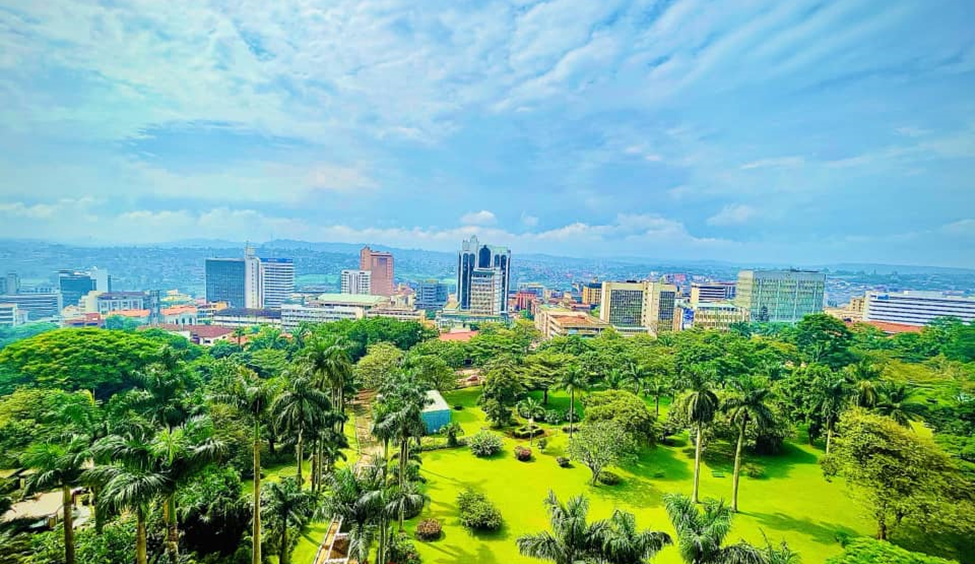Uganda leads East Africa and Ranks Third in Africa for Investment Potential

The recent Africa Risk-Reward Index for 2023 by Oxford Economics ranks Uganda as the most desirable nation to invest in within the East African Community and third across Africa. Uganda’s strong economic growth, young population, abundant natural resources, and improved economic environment contribute to its appeal to investors.

Uganda has been rated as the most desirable nation to invest in within the East African Community (EAC) and ranks third across the entire African continent in the most recent publication of the Africa Risk-Reward Index for 2023 by Oxford Economics.
The report’s reward index score of 5.53 for Uganda is ascribed to several significant advantages.
It claims that the country has had strong economic growth, has a young, growing population, and is endowed with a wealth of natural resources.
The report also praises Uganda for its recent considerable improvements to the economic environment, which have helped make country more appealing to investors.
Among its East African counterparts, Uganda is joined by other high-ranking EAC countries with Kenya at 5.22 in seventh place, Tanzania with 5.19 in eighth spot, and Rwanda 4.90 in the eleventh spot.
The top five most rewarding economies to invest in Africa, according to the index, are:
Ethiopia – 6.58
Côte d’Ivoire – 5.77
Uganda – 5.53
Nigeria – 5.50
Senegal – 5.41
The index, which is currently in its ninth edition, evaluates the investment potential of 54 African nations by taking several important aspects into account, including infrastructural development, political stability, economic growth, and the general business climate.
The focus of this year’s edition is on three key topics that will probably determine this continent’s transitional period as well as the commercial opportunities and hazards that will result from it.
Robert Mukiza, the head of the Uganda Investment Authority (UIA), claimed that “security of person and property guaranteed by the president has ensured that investors can take a punt on Uganda.”
Mukiza continued, “Second, Uganda is located in the heart of Africa and enjoys tariff and quota-free access to the EAC, COMESA, and AFCTA.”
He added: “Domicile in Uganda and you can access these markets, hence lowering the risk and heightening the rewards of investing in Uganda.”
According to the index assessment, African nations have a chance to take advantage of their collective position to raise their profile and influence policy internationally as the world’s geopolitical boundaries widen as a result of the US-China technology rivalry and the war in Russia and Ukraine.
As “friend shoring” and “nearshoring” take root, they will also need to strike a balance between their desire for objectivity and their need for outside financial backing. Investors will be watching.
The paper also claims that other sources of opportunity will come from other growing “middle powers” like India, Brazil, or Gulf Arab nations, with which the continent has some common interests.
According to the survey, as the situation in Ukraine rages on, countries in the Global North are becoming more preoccupied with their own domestic political issues.
External actors no longer consistently pay attention to conflicts and security concerns in Africa. As evidenced by Rwanda’s operations in Mozambique and the deployment of the regional force of the East African Community in eastern DRC, this in turn creates a rising opportunity for African-led interventions in regional security issues.
According to the index, Africa should, overall, gain from the long-term increase in geopolitical fragmentation. African financial services organizations are filling the funding shortfall and bridging the inclusion and access gaps in the meantime.
Additionally, as African nations prioritize trading with one another in a more fragmented globe, the continuous implementation of the Africa Continental Free Trade Agreement (AfCFTA) will also draw increased attention to regional financial connectivity. As a result, the financial services industry will continue to be profitable for investors.
According to the index report, global foreign direct investment to Africa fell by 47% in 2022 to USD 45 billion from a record high of USD 80 billion in 2021, raising concerns that African economies and businesses will experience a “funding winter” in 2023.
This is mostly because to the COVID-19 pandemic and the turmoil in Russia and Ukraine, which has caused private investors to flee to the supposedly safe havens of advanced nations.
The expansion of traditional financial infrastructure has been cautious, but access to financial services has improved. Africans are embracing internet banking more and more; thus, they have less need for retail banking facilities.
The ratio of deposit accounts to bank branches in Uganda climbed from 7,000 to 24,000 over a ten-year period and is presently just marginally higher than that of Japan (22,000 from 21,000).
This adoption of online banking, according to the index report, was not accidental; African financial institutions and telecoms firms have been at the forefront of innovation in ease-of-access, and investors have flocked to the continent’s fintech sector.
The report also emphasizes how significant Africa is becoming to the world economy. It mentions that the continent is bringing in more and more international investment and is home to some of the world’s fastest-growing economies.
The report concludes by stating that Africa is a continent of opportunity for investors. However, it also notes that there are risks associated with investing in Africa, such as political instability, corruption, and infrastructure gaps.
Investors are advised to carefully consider these risks before making any investment decisions.







